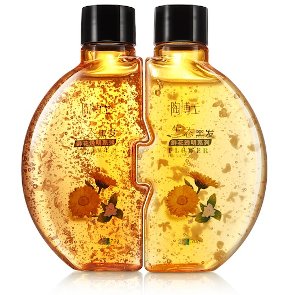5 Ingredients to Avoid in Shampoos
 Although there are cosmetic ingredient regulations that ensure you won’t be sold cosmetics with outright toxic or harmful ingredients, a lot of ingredients are in kind of a gray zone. They aren’t harmful per se, but they aren’t good either since they can cause irritation and other adverse effects. Here are 5 ingredients you should avoid in shampoos if you’re concerned about the condition of your hair and scalp.
Although there are cosmetic ingredient regulations that ensure you won’t be sold cosmetics with outright toxic or harmful ingredients, a lot of ingredients are in kind of a gray zone. They aren’t harmful per se, but they aren’t good either since they can cause irritation and other adverse effects. Here are 5 ingredients you should avoid in shampoos if you’re concerned about the condition of your hair and scalp.Sulfates
Ingredients like sodium lauryl sulfate (SLS), sodium laureth sulfate (SLES) and ammonium lauryl sulfate (ALS) are surfactants that are used in shampoos as foaming agents. In high concentrations, they may cause irritation to skin and eyes, as well as strip your hair and scalp of moisture and natural oils. If you have dry hair and/or sensitive scalp, opt for sulfate-free shampoos with mild surfactants, such as cocamidopropyl betaine or decyl glucoside.
Check this out: 6 Benefits of Co-Washing for Your Hair
Sodium Chloride
Sodium chloride is your common table salt. It is used as a thickener in shampoos containing anionic surfactants. Like sulfates, it can cause dry and itchy scalp in people with sensitive skin. It can also strip keratin from your hair, so if you’ve done a keratin treatment and want it to last as long as possible, you should avoid shampoos that contain sodium chloride.
Check this out: How to Make Your Hair Look Shinier
DEA and TEA
Diethanolamine (DEA) and triethanolamine (TEA) are organic compounds that are used to make shampoos creamier, as well as to balance their pH. The problem with them is that they have been found to occasionally cause contact allergy. Sure, they won’t necessarily irritate your scalp, but if you tend to be sensitive to cosmetics, you’d better avoid shampoos that contain DEA or TEA.
Check this out: 5 Ingredients to Avoid in Your Face Wash
Triclosan
Triclosan is an antimicrobial agent present in some consumer products. Although the use of triclosan in hand soaps has been banned by the FDA, it is still found in other products such as shampoo and toothpaste. The problem with triclosan is that it is thought to be a mild endocrine disruptor. In addition, regular exposure to triclosan can increase antimicrobial resistance in bacteria, rendering triclosan virtually useless as an antibacterial agent.
Check this out: 8 Toothpaste Ingredients You Need to Avoid
Synthetic Fragrances
Not all synthetic fragrances are irritating, but some of them are. The problem is that you can never know what kind of fragrance the manufacturer has put into your shampoo because they’re not required to disclose it. They simply write “parfum” on the bottle, and that’s it. This “parfum” may or may not be irritating; you will never know until you try. To be on the safe side, you should avoid shampoos with synthetic fragrances. Opt for products scented with essential oil blends or for unscented shampoos.
Check this out: 4 Best Essential Oils for Hair Growth
Breadcrumbs
Filters
- Hair
Tags
Related Articles
- 7 Ingredients to Avoid in Feminine Intimate Washes, 4 Ingredients to Avoid in Hair Dyes, 5 Ingredients to Avoid in Moisturizers, 5 Ingredients to Avoid in Makeup Products